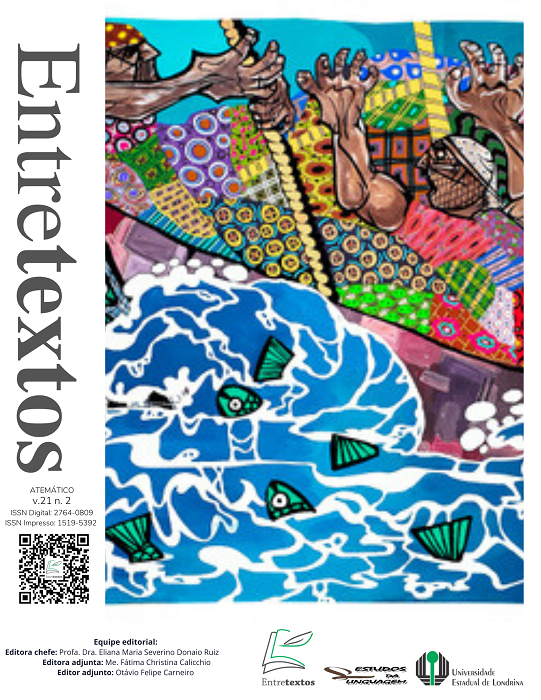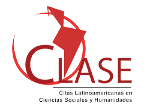BNCC de Língua Portuguesa: um olhar comparativo entre as fases do Ensino Fundamental e do Ensino Médio
DOI:
https://doi.org/10.5433/1519-5392.2021v21n2p78Palavras-chave:
BNCC, Gêneros textuais, Ensino da Língua PortuguesaResumo
A Base Nacional Comum Curricular (BNCC) é um documento prescritivo que norteia processos de ensino e aprendizagem quanto aos conteúdos e habilidades tidas como essenciais aos alunos em todas as etapas e modalidades da Educação Básica. Diante de sua importância, essa pesquisa visa confrontar seções do documento que tratam da área da Linguagem e do componente Língua Portuguesa na fase final do Ensino Fundamental e no Ensino Médio. A interpretação dos dados, com apoio de uma análise documental de conteúdo, busca respaldo na noção de gêneros textuais/discursivos como objetos do letramento escolar e em conceitos basilares para a compreensão do texto da BNCC, como práticas de linguagem, competência e habilidade e campos da atuação. Os resultados apontam, entre outros aspectos, que a BNCC do Ensino Médio busca, em relação ao Ensino Fundamental, aprofundar aspectos políticos, sociais e culturais relacionados aos gêneros de referência social para o ensino, a partir de uma abordagem mais crítica e autônoma, dando ênfase à inserção de gêneros próprios dos letramentos digitais contemporâneos.
Downloads
Referências
BARROS, Eliana Merlin Deganutti de. Gêneros textuais e práticas de letramento: a temporalidade verbal no gênero crítica cinematográfica. Revista Brasileira de Linguística Aplicada, Belo Horizonte, v. 9, n. 1, p. 177-200, 2009.
BARROS, Eliana Merlin Deganutti de. Gestos de ensinar e de aprender gêneros textuais: a sequência didática como instrumento de mediação. 2012. 359 f. Tese (Doutorado em Estudos da Linguagem) – Universidade Estadual de Londrina, Londrina, 2012.
BRASIL. Ministério da Educação. Base nacional comum curricular. Brasília, DF: MEC, 2018. Disponível em: http://basenacionalcomum.mec.gov.br/wp-content/uploads/2018/11/7._Orienta%C3%A7%C3%B5es_aos_Conselhos.pdf. Acesso em: 20 maio 2018.
BRASIL. Ministério da Educação. Ensino médio inovador. Brasília, DF: MEC, [2020]. Disponível em: http://portal.mec.gov.br/component/content/article?id=13439:ensino-medio-inovador. Acesso em: 16 jul. 2020.
BRASIL. Ministério da Educação. Parâmetros curriculares nacionais: Língua Portuguesa. Brasília, DF: Secretaria de Educação Fundamental, 1998.
GIL, Antonio Carlos. Métodos e técnicas de pesquisa social. 6. ed. São Paulo: Atlas, 2014.
MARCUSCHI, Luiz Antônio. Produção textual: análise de gêneros e compreensão. São Paulo: Parábola Editorial, 2008.
ROJO, Roxane. Novos multiletramentos e protótipos de ensino: por um Web-Currículo. In: CORDEIRO, Glais Sales; BARROS, Eliana Merlin Deganutti de; GONÇALVES, Adair Vieira (org.). Letramentos, objetos e instrumentos de ensino: Gêneros textuais, sequências e gestos didáticos. Campinas, SP: Pontes, 2017. p. 189-216.
Downloads
Publicado
Como Citar
Edição
Seção
Licença
Entretextos adota a Licença Creative Commons Attribution 4.0 International, portanto, os direitos autorais relativos aos artigos publicados são do/s autor/es.
Sob essa licença é possível: Compartilhar - copiar e redistribuir o material em qualquer suporte ou formato. Adaptar - remixar, transformar, e criar a partir do material, atribuindo o devido crédito e prover um link para a licença e indicar se mudanças foram feitas.





















